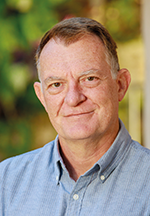

In a televised broadcast last month, South Africa’s president Cyril Ramaphosa announced a plan to end the current load shedding that has been plaguing South Africa and its economy. While the sweeping changes that were announced are certainly welcome, it remains to be seen whether it will be enough to stop load shedding.
Currently during peak hours, SA is short of about 6000 MW of energy and the plan would see this shortfall catered for. However, the Energy Crisis Committee comprising of six ministers has now revealed that there is only the potential to add 1950 MW of capacity and even this figure relies on many criteria that are somewhat unrealistic.
Eskom requires consent to purchase surplus power that is available from current independent power producers (IPPs), and if this consent is granted, will see only up to 1000 MW of power potentially delivered in the next three months. This is only one-sixth of the power needed to stop load shedding during peak hours. Over and above this, there is also another 600 MW that can be connected to the grid, but this seems unlikely given the vast amount of red tape that needs to be cut through to make this happen.
The plan would also see SA purchasing power from neighbouring countries through the Southern African Power Pool (SAPP) but this would mean only a further 100 to 200 MW of power added within a month.
Will this added power be welcome? Definitely. Is this enough to help prevent load shedding? An emphatic no! At best the current load shedding will be reduced by two stages only.
You may ask why I am being the bearer of bad, or should I say, realistic news?
Well, I have a passion for education. I firmly believe that for a country to succeed, it needs to have a fully functioning education system from school through to tertiary level. Load shedding has had a devastating effect on SA’s economy but in my discussions with key role players, they believe that there is hope as long as the new generation coming through is allowed to make a difference. And this is where I have a nagging feeling at the back of my brain.
Load shedding has not only had an almost catastrophic effect on our economy, but it has also had a similar effect on education, especially in the fields of science, technology and engineering. In these fields of study scholars and students need hands-on experience with equipment. This cannot take place if there is no power to run this equipment. I have witnessed first-hand the dwindling numbers of students entering tertiary education that are suitably equipped to deal with the rigours of studying towards an engineering or a technological qualification.
And before it is pointed out, yes, I do understand the effect that the COVID-19 pandemic has had on the education system which has seen an abrupt step down in the ability of students. However, this gradual decline mentioned above has been seen over many years, long before the pandemic was unleashed. The long-term attention for any developing country should be on the education system if the goal is one of upliftment, but this is sadly not happening.
August in South Africa is Woman’s month when we celebrate the strength and achievements that women have had in all spheres of life in this country. Maybe it’s time we place a woman in charge of the energy portfolio and maybe, just maybe, changes will be implemented to solve our crisis at something more than a snail’s pace.
| Tel: | +27 11 543 5800 |
| Email: | [email protected] |
| www: | www.technews.co.za |
| Articles: | More information and articles about Technews Publishing |
© Technews Publishing (Pty) Ltd | All Rights Reserved